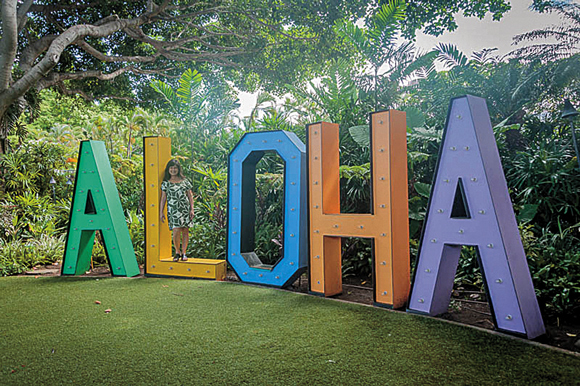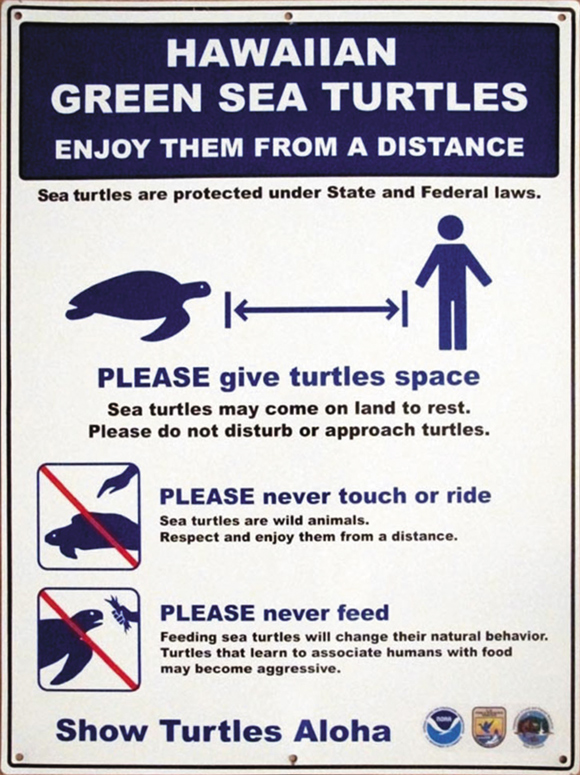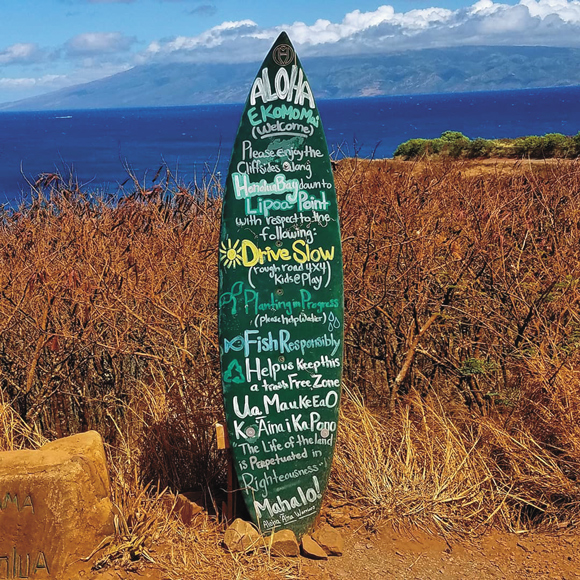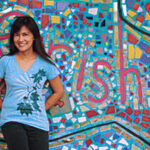
When in Hawai‘i, respect and follow Hawaiian Culture
Liza A Pierce of “A Maui Blog”
I learned visitors who know the basic Hawaiian values and cultures are the ones who enjoy their Maui vacation to the fullest. They not only fell in love with the place but they also all fell in love with its people.
So here are some of the important Hawaiian values you need to know. This is not a complete list by any means but I believe knowing and applying the following values is a good start: Kuleana, Mālama, Kōkua, Pono and Aloha.

Photo courtesy Liza Pierce
Kuleana
It is a uniquely Hawaiian value and practice which is loosely translated to mean “responsibility.” The word kuleana refers to reciprocal relationships between the person who is responsible and the things they are responsible for.
During the pandemic, the practice of kuleana was evident in the way the people of Hawai‘i protected their kƉpuna (elders). Most, if not all, felt it is our responsibility to protect our elders, not just within our ‘ohana but the whole community as well. Hawai‘i is one of the first States where mask wearing was mandated and is strictly implemented. People wear masks because we feel it is our kuleana to do so.
Mālama
The value of mālama is closely related to the value of kuleana. Mālama means to tend, to care for, preserve, protect and watch over. To put it together, we can say, “It is our kuleana to mālama our ‘ohana and ‘āina. In our previous discussion on kuleana, we touched about the caring for our ‘ohana (family) and kƉpuna (elders). In this section, I would like to turn our attention to Mālama ‘Āina.
As visitors to Maui, it is your kuleana to mālama the ‘āina. This means taking care of the land, which extends to taking care of the ocean, the creatures and the natural resources.
Here are some of the ways we can put this value into action:
• Use a sunblock that won’t hurt the reef.
• Don’t throw plastic in the ocean. Strive for minimal use of plastic.
• Don’t feed the Nēnē.
• Don’t get too close to the honu and do not touch them.
• Don’t get too close to the monk seal and do not touch them.
• Don’t litter—pick up your ‘ōpala on the beach, parks, etc.
• Don’t step on or touch coral.

Photo courtesy NOAA
Kōkua
The word kōkua means help. Its deeper meaning is to extend help to others in a sacrificial way with no intent of personal gain. It is about giving without expecting anything in return. This value is manifested ever so clearly during the COVID-19 pandemic on Maui. With a very high unemployment rate, many people who lost their jobs and many entrepreneurs who lost their businesses needed kōkua. The people on Maui generously give. Many supported Maui Food Bank as this non-profit organization oversees the distribution of food to those who are in need of food.
When you come and visit Maui at this time, one way to show kōkua is by leaving generous tips to your service providers (food servers, room cleaners, drivers, etc.). I understand you are already spending a lot or money coming here to visit and some of you might be tempted not to give tips.
Going the extra mile by practicing kōkua will make you a better person on Maui and beyond.
Pono
Like many Hawaiian words, pono does not have a one-on-one English translation. If there were one, it would most likely be righteous as in the State motto: Ua Mau ke Ea o ka ‘Āina i ka Pono meaning “The life of the land is perpetuated in righteousness.” A simpler translation of pono is to do the right thing.
The concept of pono is taught to Hawaiian children at a very young age. It is a guiding principle that is to shape their every decision. “Is it pono?” they are asked. In their words, “Will what you’re about to do help bring harmony and good into the world?”
When you visit Maui, be aware of the value of pono when making decisions. For example, it is not pono to trespass on a private property.

Photo courtesy Carol S. Vanhorn
Aloha
When you’re in Hawai‘i, it is very common to hear the word aloha. A day won’t pass without you hearing it or seeing it. Aloha is probably one of the most used Hawaiian word. And it has a variety of uses and meanings. We use Aloha to say hello and goodbye, we use it as a greeting or salutation on a letter. We use Aloha for love. But really … what is the true meaning of Aloha?
I read an article titled “Deeper Meaning of Aloha” by Curby Rule and the explanation gave me a whole new understanding of the word. Aloha’s deeper meaning is that it is a way of life. Here is an excerpt:
The spirit of Aloha was an important lesson taught to the children of the past because it was about the world of which they were a part. One early teaching goes like this:
Aloha is being a part of all, and all being a part of me. When there is pain—it is my pain. When there is joy—it is also mine. I respect all that is as part of the Creator and part of me. I will not willfully harm anyone or anything. When food is needed, I will take only my need and explain why it is being taken. The earth, the sky, the sea are mine to care for, to cherish and to protect. This is Hawaiian—this is Aloha!
Now that we have explored what Aloha is, the question is how do we apply it in our lives? How do we practice Aloha? There will be many opportunities for you to express Aloha during your visit to Maui and beyond.
 Liza Pierce of A Maui Blog is an Interactive Media Strategist in Hawai‘i. She started blogging in 2006 and she loves talking story online and spreading aloha around the world. She’s been living on Maui since 1994 and considers Maui her home. A wife, a mother, a friend…and so much more. She loves Jesus; Maui Sunsets Catcher; Crazy About Rainbows; End Alzheimer’s Advocate. Her life is full and exciting here on the island of Maui. Liza is currently the Interactive Media Strategist with Wailea Realty Corp.
Liza Pierce of A Maui Blog is an Interactive Media Strategist in Hawai‘i. She started blogging in 2006 and she loves talking story online and spreading aloha around the world. She’s been living on Maui since 1994 and considers Maui her home. A wife, a mother, a friend…and so much more. She loves Jesus; Maui Sunsets Catcher; Crazy About Rainbows; End Alzheimer’s Advocate. Her life is full and exciting here on the island of Maui. Liza is currently the Interactive Media Strategist with Wailea Realty Corp.
